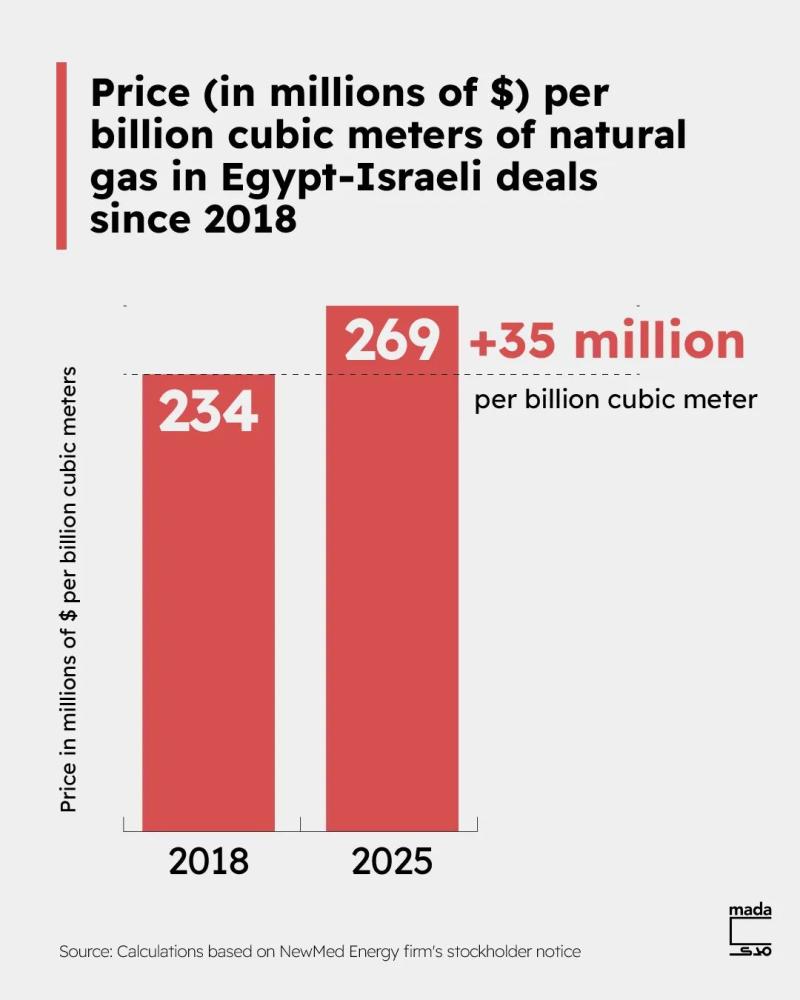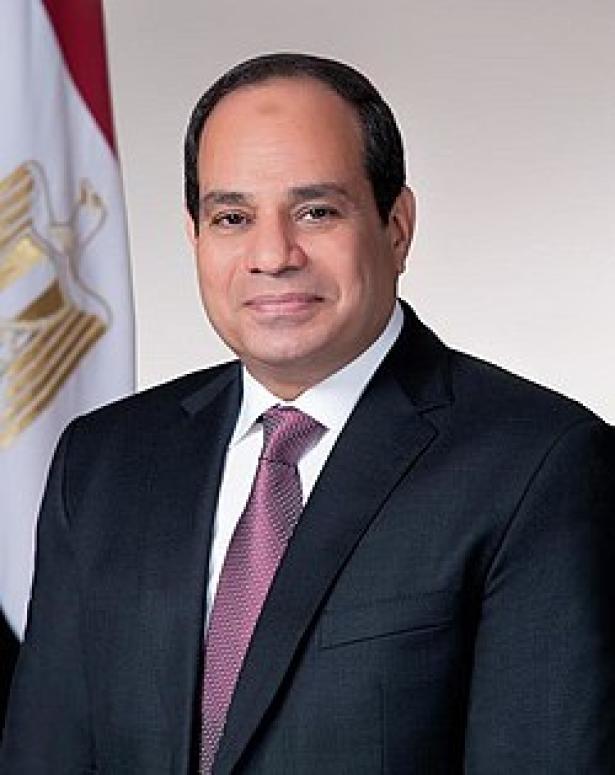As Sisi Accuses Israel of Genocide, Egypt Signs Record $35 Billion Gas Deal With Israel
Egyptian president Abdel Fattah El-Sisi this week issued his most strident criticism of Israel to date, calling its assault on Gaza “a war for starvation, genocide, and the liquidation of the Palestinian cause.” In his comments on Tuesday, Sisi also defended Egypt against accusations that it was complicit in the suffering of Palestinians in Gaza for not opening the Egyptian side of the Rafah border crossing to allow in aid. “The claims made by some that Egypt is participating in the blockade of the Palestinian people in the Gaza Strip and contributing to their starvation is bankruptcy—these are strange words,” he said.
Sisi’s comments came just a few days before news broke that Israeli energy company NewMed had signed a record $35 billion deal to supply gas to Egypt in the largest export agreement in Israel’s history.
The Egypt-based independent news outlet Mada Masr has been closely covering Egypt’s energy deals with Israel and first revealed in an in-depth investigation in 2018 that East Gas, a company majority-owned by Egypt’s powerful General Intelligence Services, was at the heart of previous deals to import and resale Israeli gas.
We are reprinting Mada Masr’s latest article on this week’s mega deal with their permission. Like Drop Site, Mada Masr relies on the support of its community of readers to sustain its journalism. You can learn more about how to become a member of Mada Masr here.
—Sharif Abdel Kouddous
This article was originally published by Mada Masr and is being republished by Drop Site News with their permission.
A $35 billion gas deal announced on Thursday will see Egypt redouble its energy dependence on Israeli fields as an expansion of a landmark 2018 deal between the two countries.
Per the terms of the deal, the Egyptian side will pay about $35 million more per billion cubic meters than it did under the terms of the previous deal, a 14.8 percent increase, per Mada Masr’s calculations.
Over the course of the deal, which runs to 2040, Egypt will import an additional 130 billion cubic meters of natural gas from Israel’s Leviathan field.
The deal, which is still pending key expansion in pipeline and extraction infrastructure, was announced as part of a shareholder disclosure by Israel’s NewMed Energy firm, a partner in the development of Israel’s Leviathan gas field.
The agreement marks the end of months of negotiations to expand the volume of Israeli natural gas piped to Egypt to support the government in meeting growing domestic energy demand. The talks have continued in parallel to Israel’s genocidal war on the Gaza Strip, even as the war has placed a strain on bilateral relations.

The 2018 agreement saw the Egyptian company Dolphinus Holdings agree to pay $15 billion for around 64 billion cubic meters of Israeli natural gas over a 10-year period to Delek and Noble Energy, the partners managing Israel’s Tamar and Leviathan offshore fields.
The buyer named by NewMed in the shareholder notice one Thursday is Blue Ocean Energy, a company that Mada Masr revealed to be a subsidiary of Dolphinus Holdings in a 2018 investigation. Dolphinus and Blue Ocean partnered at the time to import and resell the Israeli gas with East Gas, a firm majority-owned by the General Intelligence Services.
The two sides have been in negotiations for months to increase the volumes of gas piped to Egypt from Israel, a former Petroleum Ministry official and a government source told Mada Masr earlier this year. The sources anticipated that Egypt would ultimately accede to Israel’s demand for a higher price per million thermal units of natural gas in the negotiations, since Israeli-piped gas remains the cheapest alternative available to boost much-needed supplies.
However, the Thursday notice cautions that there is “no assurance” that the deal will be fulfilled, given pending conditions.
These conditions include planned expansions to the Ashdod-Asheklon pipeline and to the Leviathan field itself.
The pipeline expansion agreement was inked in 2021, but its completion date has been repeatedly delayed since then. Meanwhile, the expansion of the Leviathan field is pending a final investment decision and a transmission agreement with Israel Natural Gas Lines, the state body managing the pipeline.
According to the notice, these terms must be met by September 30, 2025 for the deal to go forward. The parties to the deal can invoke a six-month extension to this deadline if necessary.
The deal comes as Egypt faces a swelling energy import bill to fill the gap between domestic supply and consumption. About a third of the total demand needs to be met by additional inputs.
While the country currently requires between 4 and 6 billion cubic feet of gas per day, local production has continued to drop to around 4 billion cubic feet, according to data published earlier this year by the Joint Organizations Data Initiative coordinated by the International Energy Forum.
Israeli fields are already committed under the earlier agreements to export around 4.5 billion cubic meters of gas to Egypt per year. Israel has repeatedly halted supply since the outbreak of the war on Gaza in October 2023.
The most recent halt came in June during Israel’s 12-day war with Iran, when production at Leviathan was paused amid concerns that Iran might target the facility. This disruption meant that industrial facilities in Egypt were without gas supplies.
Throughout Israel’s genocidal war on Gaza, Egypt has faced criticism for not doing more to bring a halt to the suffering and killing of Palestinians. Tensions have reached new heights in recent months as the Israeli-orchestrated famine in Gaza worsens, with protesters and critics calling for Egypt to open its side of the Rafah border in order to allow aid into Gaza.
President Abdel Fattah al-Sisi has publicly pushed back against this criticism in recent weeks. Earlier this week, the president struck out against the international community for its inaction and described the allegations made by some that Egypt is participating in the siege and starvation of the Palestinian people in the Gaza Strip as “bankruptcy” and “strange talk.”
Faced with an energy gap over the last two summers, Egypt has adopted triage measures that have included planned rolling blackouts, sparking popular anger due to the lengthy outages, stretching for up to six hours at a time in some cases, amid the scorching heat.
The Petroleum Ministry supplemented its energy mixture of mazut and natural gas by boosting expensive liquified natural gas imports, which are expected to cost $19 billion this year compared to $12 billion in 2024, according to a ministry report reviewed by Mada Masr. This costly pivot was undertaken to get ahead of growing public discontent, government officials told Mada Masr.
A guest post by emma scolding with Mada Masr.
A guest post by Sara Seif Eddien Economic report @MadaMasr.


Spread the word